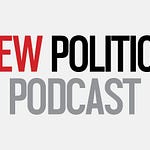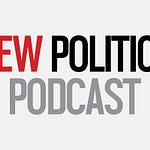First, we discuss the end of Bill Shorten’s 17-year political career, which began with the Rudd government in 2007 and culminated in his leadership of the opposition from 2013 to 2019. We reflect on his near win in the 2016 election and his unexpected loss in 2019, as well as the political realities that likely influenced his decision to leave parliament. While Shorten’s career didn’t see him become Prime Minister, we analyse the internal factional pressures and broader political forces that shaped his exit.
Next, we look at the Labor government's proposed reforms to the Reserve Bank of Australia, aimed at creating a specialist interest-rate setting board. With the Coalition refusing to participate in these negotiations, we examine the broader implications of their obstructionist tactics. Why does the government seem so eager to negotiate with the Coalition, and what are the political strategies at play? Is Treasurer Jim Chalmers strategically positioning the Australian Greens as a more viable negotiation partner, while using the Coalition’s refusal to cooperate as political leverage?
We also take a critical look at the protests surrounding the Land Forces Exposition in Melbourne, a global military conference showcasing weapons that have been used in conflicts around the world, from Gaza to Ukraine. With thousands of protestors organised by Disrupt Land Forces speaking out against the international arms trade, we explore the contradictions of a world that seeks to minimise conflict while profiting from the sale of military equipment. We question the role of the United States, which controls 40 per cent of the global military industry, and explore how such conferences perpetuate global conflicts for economic gain.
Peter Dutton’s is now promising to "turbocharge" 420 mining projects. Channeling Donald Trump, Dutton’s vision of more gas, more trucks, and more excavators seems more like a child’s sandbox fantasy than a serious economic plan. But how far will political leaders go to use mining as a prop in their election strategies? As the Coalition ramps up its rhetoric on mining and live sheep exports, we dissect the absurdity of its politics of fear, where small issues are inflated into existential threats to voters.
We also take a closer look at the Coalition’s contradictory stance on the live sheep export trade, with leaders like Sussan Ley flip-flopping from condemning the practice in 2018 to now supporting it as a "core" issue. How does the Coalition weaponise issues like mining and sheep exports to maintain relevance in the absence of substantive policy?
Join us for an in-depth exploration of Australian politics, where we cut through the noise and examine the real dynamics driving the headlines, bringing the big issues into focus and offering a fresh perspective on the political machinations being played behind the scenes.
This is a public episode. If you’d like to discuss this with other subscribers or get access to bonus episodes, visit newpolitics.substack.com/subscribe













Share this post